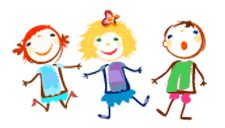
Infant 1, Baby Cycle

Infant 1, Baby Cycle
Due to our policy of very low numbers in the Infant 1 Cycle, we are able to provide constant supervision of all our babies, at all times. Special importance is given to daily hygiene routines, as it is to all the babies' needs. This continuous visual contact and closeness enables us to attend the baby's every need and without delay when required. By caressing, talking to and reassuring the baby we are able to secure an effective relationship.
EVOLUTIONARY DEVELOPMENT IN THE FIRST YEAR OF A BABY'S LIFE
At this stage, body language is the first means of communication, and so babies express their needs through gestures, attitudes and visual contact that provoke reactions in their environment. This leads to an affective exchange with others. A baby begins to recognize familiar faces and reacts to strangers by crying. These reactions are also reflected in the infant's body, through muscle- tone and tension.
In a child's first year of life, biological functions of self-preservation stand out. By sucking and biting a baby finds a way to explore the world that surrounds him/her.
This is a fundamental stage of infancy, as it is now the right moment to educate and enjoy the body; it is the so-called "Stage of the Dream" in which, movement and displacement in space accelerates and benefits a child's development.
The baby will now discover how to roll-over by him/herself, moving from a face-up position to a face-down position and vice versa. Neck muscles will be strengthened, as well as buttocks and the back. These movements will eventually allow the baby to sit up, initially with support and maintain a sitting position without help.
Sitting allows a baby to improve hand manipulation and sight and hearing will now replace the sucking and biting phase as a means of exploring. Through the senses the baby will discover different parts of the body and will mature and develop through these experiences.
After turning and sitting a baby will discover the possibility of crawling, first circularly movements and then covering short distances in a straight, forward manner. Towards the end of the last term, when nearly 12 months old, the baby will be able to stand up.
Taking into account all these circumstances, all activity will be flexible so as to attend to each baby, whose activities will be related to the movement of their own body and experimentation with the elements of the environment.

Due to our policy of very low numbers in the Infant 1 Cycle, we are able to provide constant supervision of all our babies, at all times. Special importance is given to daily hygiene routines, as it is to all the babies' needs. This continuous visual contact and closeness enables us to attend the baby's every need and without delay when required. By caressing, talking to and reassuring the baby we are able to secure an effective relationship.
EVOLUTIONARY DEVELOPMENT IN THE FIRST YEAR OF A BABY'S LIFE
At this stage, body language is the first means of communication, and so babies express their needs through gestures, attitudes and visual contact that provoke reactions in their environment. This leads to an affective exchange with others. A baby begins to recognize familiar faces and reacts to strangers by crying. These reactions are also reflected in the infant's body, through muscle- tone and tension.
In a child's first year of life, biological functions of self-preservation stand out. By sucking and biting a baby finds a way to explore the world that surrounds him/her.
This is a fundamental stage of infancy, as it is now the right moment to educate and enjoy the body; it is the so-called "Stage of the Dream" in which, movement and displacement in space accelerates and benefits a child's development.
The baby will now discover how to roll-over by him/herself, moving from a face-up position to a face-down position and vice versa. Neck muscles will be strengthened, as well as buttocks and the back. These movements will eventually allow the baby to sit up, initially with support and maintain a sitting position without help.
Sitting allows a baby to improve hand manipulation and sight and hearing will now replace the sucking and biting phase as a means of exploring. Through the senses the baby will discover different parts of the body and will mature and develop through these experiences.
After turning and sitting a baby will discover the possibility of crawling, first circularly movements and then covering short distances in a straight, forward manner.
Towards the end of the last term, when nearly 12 months old, the baby will be able to stand up.

Taking into account all these circumstances, all activity will be flexible so as to attend to each baby, whose activities will be related to the movement of their own body and experimentation with the elements of the environment.
Classrooms
Small groups in all classrooms
Food and rest
Different patterns of sleep, wakefulness and feeding times are organized to ensure and respect, as much as possible, the demands of each baby.
Español
We approach the English language through games and songs, introducing the language in a natural way.
My backpack
What do I have to bring to school? At the beginning of the course:
- 5 bibs with t-shirt collar
- Diaper pack
- Wipes package
In the backpack:
- Complete change of clothes
- Baby (Change)
- Baby bottle for water
- Pacifier (if used)
- Doll or attachment element for sleeping (if used)
If a change of clothes has been necessary, the backpack will be returned on Friday. On Wednesday the dirty over-shirt (babi) will be returned and it should be replaced by a clean one. Diapers and wipes will be replaced when required, always keeping in mind that they should be handed in a week in advance. Bibs remain in the center and will be washed daily in our laundry, at the end course to be discarded.
What to do when sick
- When a pupil becomes ill at school, parents are notified immediately. If the antipyretic medication form has been signed and authorized, medication will be given while waiting for parents to arrive and collect their child.
- Pupils will not be able to return to the school until 24 hours without fever or without medication has transpired. This measure is taken to preserve the well-being of all pupils and to prevent the contagion of other children.
- No medication will be administered without the corresponding medical prescription.
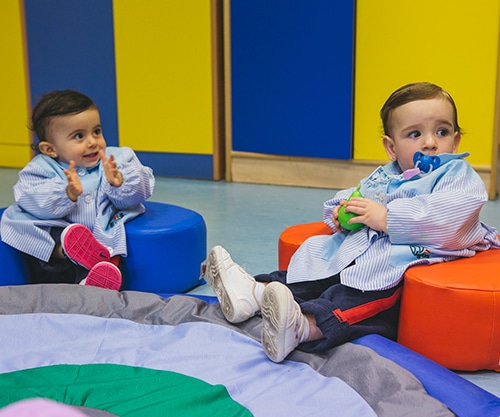
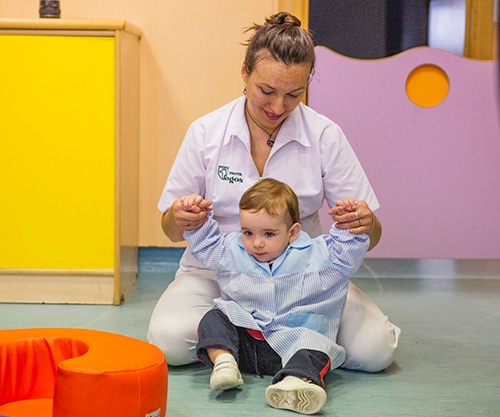
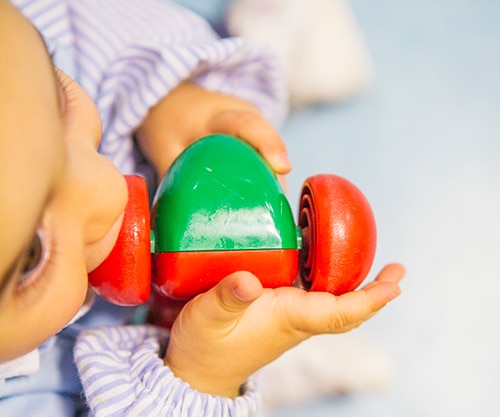
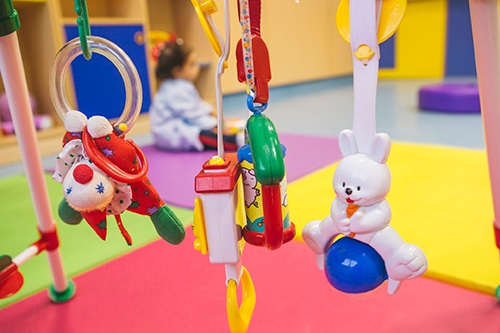
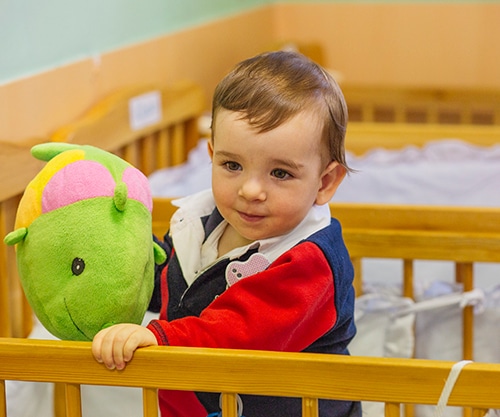
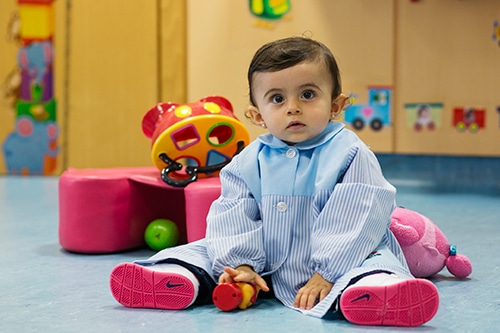
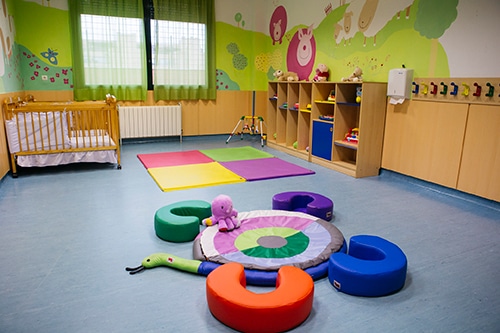
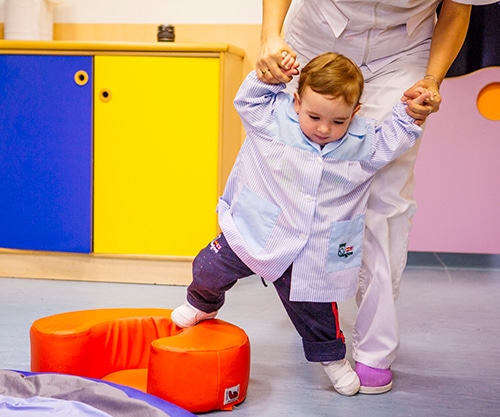
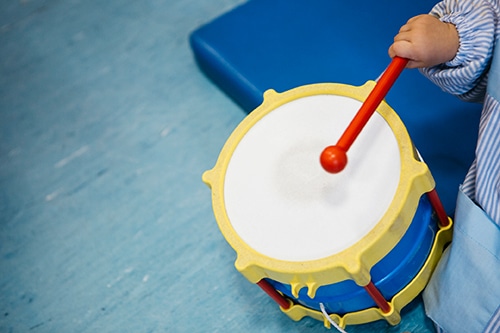
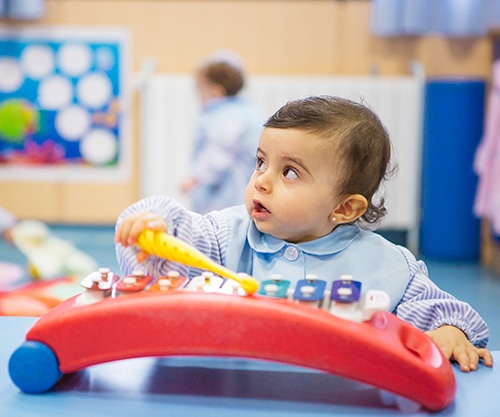
Classrooms
Small groups in all classrooms
Food and rest
Different patterns of sleep, wakefulness and feeding times are organized to ensure and respect, as much as possible, the demands of each baby.
Español
We approach the English language through games and songs, introducing the language in a natural way.
My backpack
What do I have to bring to school? At the beginning of the course:
- 5 bibs with t-shirt collar
- Diaper pack
- Wipes package
In the backpack:
-
Complete change of clothes
-
Baby (Change)
-
Baby bottle for water
-
Pacifier (if used)
-
Doll or attachment element for sleeping (if used).
If a change of clothes has been necessary, the backpack will be returned on Friday. On Wednesday the dirty over-shirt (babi) will be returned and it should be replaced by a clean one. Diapers and wipes will be replaced when required, always keeping in mind that they should be handed in a week in advance. Bibs remain in the center and will be washed daily in our laundry, at the end course to be discarded.
What to do when sick
- When a pupil becomes ill at school, parents are notified immediately. If the antipyretic medication form has been signed and authorized, medication will be given while waiting for parents to arrive and collect their child.
- Pupils will not be able to return to the school until 24 hours without fever or without medication has transpired. This measure is taken to preserve the well-being of all pupils and to prevent the contagion of other children.
- No medication will be administered without the corresponding medical prescription.










Discover our Nursery Stages

I Infant Cycle 1 and 2 year olds
II Infant Cycle 3 year olds
II Children's Cycle 4 and 5 years
